March 22, 2017
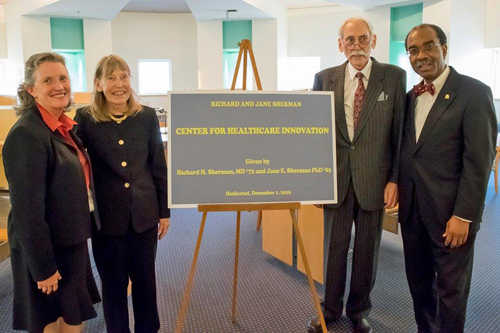
University of Maryland, Baltimore (UMB) President Jay A. Perman, MD, along with the University of Maryland School of Medicine (UM SOM) Dean E. Albert Reece, MD, PhD, MBA, and the University of Maryland School of Nursing (SON) Dean Jane M. Kirschling, PhD, RN, FAAN, announced today that an alumni couple, Richard Sherman, MD, SOM ’72, and Jane Sherman, PhD, SON ’85, have made a $1.5 million gift to the University to establish a health care innovation center to be located in the Health Sciences & Human Services Library.
 The gift, which will be used to create the new Richard and Jane Sherman Center for Health Care Innovation at the library, is dedicated to encouraging an environment where doctors, medical students, nurses, and other health care professionals can harness their intellects and probe their thinking “beyond the box.”
The gift, which will be used to create the new Richard and Jane Sherman Center for Health Care Innovation at the library, is dedicated to encouraging an environment where doctors, medical students, nurses, and other health care professionals can harness their intellects and probe their thinking “beyond the box.”
“It will be a place in which motivated health care thinkers and doers, individuals and teams of learners and mentors with diverse capabilities will find sources of intellectual property information, as well as diverse tools useful in promoting innovation,” said Richard Sherman, who retired from private practice in internal medicine and cardiology in 2015.
He added, the center will centralize software with sources of academic, corporate, and scientific material with potential to enable people to efficiently focus ideas toward the improvement of patient-physician focused health care.
“The Shermans understand better than most how critically important it is that we nurture the relationship between provider and patient, that we enable their close communication and collaboration, so that everyone on the provider team understands the outcomes they’re striving for and how to best achieve them,” Perman said. “I’m so grateful that the Shermans want to harness innovation as a way to strengthen this special relationship and have underwritten our efforts to do just that.”
“The remarkable and generous gift by Richard and Jane Sherman is a powerful gesture signaling both their compassion and their genuine commitment to stimulate innovative thinking here at UMB and well beyond,” added Tom Sullivan, CFRE-MS, vice president and chief philanthropy officer of UMB’s Office of Philanthropy. “Their extraordinary charitable investment will create a lasting impact that will alter the lives of countless patients in the years to come.”
At UM SOM, Richard Sherman was mentored by the esteemed Theodore Woodward, MD,’38, then chair of the SOM Department of Medicine. In part, Richard Sherman said, it was the impact of mentors such as Woodward that inspired the creation of the Center.
“I was mentored by outstanding people at the medical school who taught me the real meaning of innovation, people who helped me to think differently and beyond the norm,” Richard Sherman said. “When you are trained properly in the beginning, it stays with you for life.” Dean Reece, who is also the vice president for medical affairs, University of Maryland, and the John Z. and Akiko K. Bowers Distinguished Professor, commented: “This is a tremendous gift from Drs. Richard and Jane Sherman that strongly supports our goal to focus on innovations that enable current and future health care professionals to provide the highest level of quality in health care delivery. We are all proud to have an alumni couple like the Shermans who are so dedicated to our institution and to making an impact.”
Jane Sherman, who practices holistic nursing, also referenced her School of Nursing education as playing a key role in supporting her strong convictions about the emphasis of providing nursing care that is both nursing research- and theory-based. She was one of four graduates in the first class of the school’s PhD program.
“Dr. Perman has been a strong advocate for interdisciplinary learning and service at the University of Maryland, Baltimore,” Jane Sherman said. “In support of Dr. Perman’s vision, the Center will unite UMB’s professional schools and will be available to anyone on campus who wishes to take advantage of this outstanding resource.”
“We are excited about the enormous opportunities created by this generous gift from Drs. Richard and Jane Sherman,” added Kirschling, university director, Interprofessional Education. “Their gift will build upon the University’s ongoing work in interdisciplinary and team-based health care delivery and research. It will provide significant new resources and tools to spur creative thinking and innovation. We are deeply grateful to the Shermans for their commitment to creating an environment where new ideas will thrive.”
Together, the couple saw a need for changes in a health care system that has been cluttered by a check-the-box mentality that employs people who actually get between doctor and patient. Collaborative interaction and communication are lost, Richard Sherman said, by needless forms that often repeatedly ask the same questions of a patient. He had cancer as a 27-year-old intern and developed a perspective from both the doctor and the patient point of view.
Thinking “beyond the norm” inspired Richard Sherman’s involvement in the creation of ICU Medical Inc., a San Clemente, Calif., company that develops life-saving and life-enhancing medical devices. The company’s founder, George Lopez, MD, invented its first product, the ClickLock, following the death of a patient whose IV accidentally disconnected. Richard Sherman remains a member of ICU’s board of directors.
Overall, Richard Sherman believes that today’s health care is burdened by non-professional policy makers driven by cash flow to support a massive bureaucracy. He adds that unnecessary programs need to be eliminated while others should be merged to promote economy and improved quality of care.
Both Richard and Jane Sherman point out the need for students to examine whether they really have the “gut ethic” it takes to distinguish the difference between individualized quality care and care that is just generic. It is Richard Sherman’s hope that the new Center will support students who have creative ideas that need to be nurtured, so that these ideas are not lost.
About the University of Maryland School of Medicine
Celebrating its 210th Anniversary, the University of Maryland School of Medicine was chartered in 1807 and is the first public medical school in the United States and continues today as an innovative leader in accelerating innovation and discovery in medicine. The School of Medicine is the founding school of the University of Maryland and is an integral part of the 11-campus University System of Maryland. Located on the University of Maryland’s Baltimore campus, the School of Medicine works closely with the University of Maryland Medical Center and Medical System to provide a research-intensive, academic and clinically based education. With 43 academic departments, centers and institutes and a faculty of more than 3,000 physicians and research scientists plus more than $400 million in extramural funding, the School is regarded as one of the leading biomedical research institutions in the U.S. with top-tier faculty and programs in cancer, brain science, surgery and transplantation, trauma and emergency medicine, vaccine development and human genomics, among other centers of excellence. The School is not only concerned with the health of the citizens of Maryland and the nation, but also has a global presence, with research and treatment facilities in more than 35 countries around the world. medschool.umaryland.edu/
Learn More
Contact
Office of Public Affairs
655 West Baltimore Street
Bressler Research Building 14-002
Baltimore, Maryland 21201-1559
Contact Media Relations
(410) 706-5260
Related stories
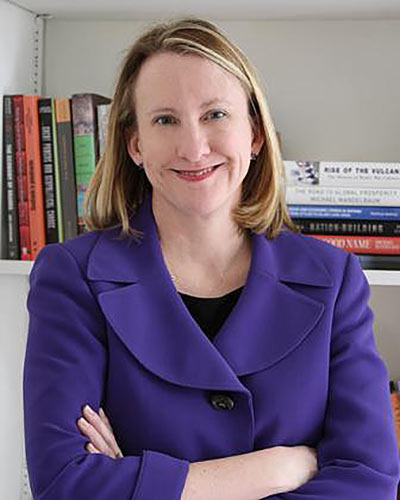
Friday, November 03, 2023
Senior Academic Philanthropy Leader Kim M. Morton, JD, MA, Named New Associate Dean for Development at University of Maryland Medicine
University of Maryland School of Medicine (UMSOM) Dean Mark T. Gladwin, MD, along with University of Maryland Medical Center (UMMC) President and CEO, Bert W. O'Malley, MD, announced today that Kim M. Morton, JD, MA, who has led advancement operations for major academic and healthcare institutions during her career, will become Associate Dean for Development at University of Maryland Medicine Philanthropy, the joint advancement operation of the UMSOM and UMMC. Ms. Morton, who was selected as the top candidate, following a national search, will report to Heather Culp, Senior Vice President, Chief Philanthropy Officer and Senior Associate Dean. Her appointment will begin December 18.
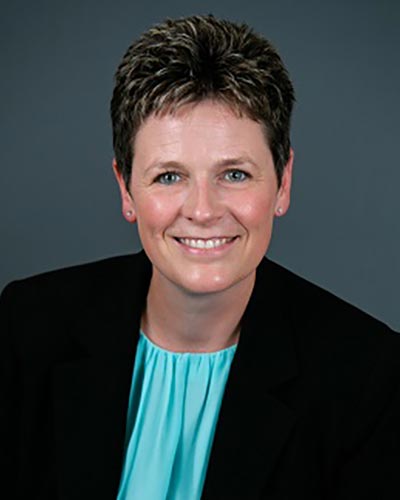
Tuesday, January 10, 2023
University of Maryland Medicine Philanthropy Appoints Heather S. Culp, JD, as new Senior Vice President and Chief Philanthropy Officer
The University of Maryland School of Medicine (UMSOM) and University of Maryland Medical Center (UMMC) have jointly announced today that senior advancement leader Heather S. Culp, JD, has been named as the new Senior Vice President and Chief Philanthropy
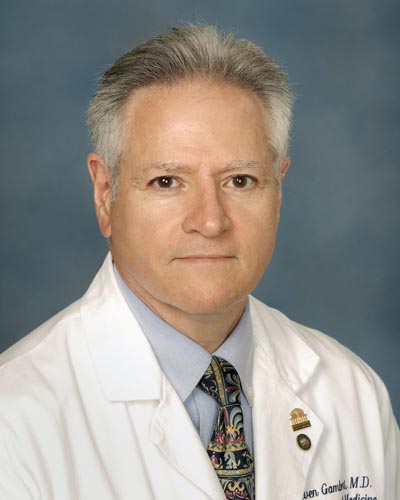
Wednesday, February 12, 2020
UM School of Medicine Names Dr. Steven R. Gambert First Medical Director for Development
UMSOM Dean E. Albert Reece, MD, PhD, MBA, along with Mary Pooton, Assistant Dean for Development at the University of Maryland School of Medicine (UMSOM), announced today that Steven R. Gambert, MD, AGSF, MACP, UMSOM Professor of Medicine and Division Head for Gerontology and Geriatric Medicine, has been named the school’s first Medical Director of Development.

Thursday, November 30, 2017
University of Maryland School of Medicine Medical Students Celebrate Thanksgiving by Helping Baltimore's Neediest
For the 28th year in a row, on November 23, 2017 students from the University of Maryland School of Medicine (UMSOM) and other University of Maryland Baltimore schools provided a Thanksgiving meal and more for some of Baltimore’s neediest. Students, faculty and staff from the medical school, as well as other University of Maryland Baltimore schools, gathered at Booker T. Washington Middle School on Thanksgiving to serve a meal and provide free clothing and food to those in need, including children. Medical students also took blood pressure readings. Over 400 meals were served and 150 volunteers took part in this Baltimore tradition.
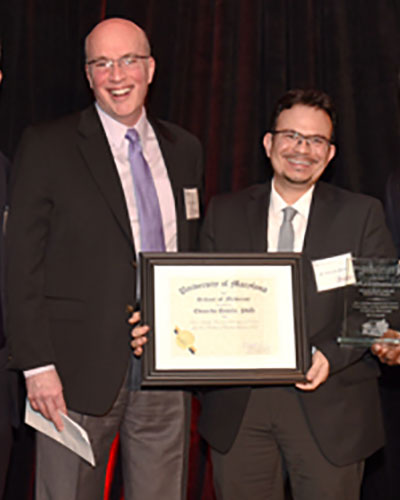
Wednesday, March 02, 2016
Celebrating Diversity Dinner Supports Funding for Student Scholarships
The University of Maryland School of Medicine (UM SOM) held its ninth annual "Celebrating Diversity" reception and dinner on February 27, 2016 at the Marriott Inner Harbor at Camden Yards. The event was attended by nearly 300 guests, who gathered to honor diversity at the school, recognize those who have helped increase its diversity, and to raise money for the Dean Emeritus Donald E. Wilson Endowed Scholarship fund and other UM SOM diversity scholarships.
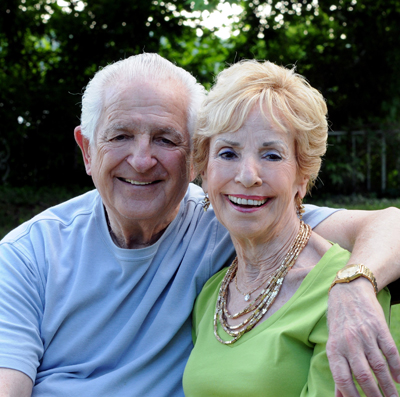
Friday, February 12, 2016
To Honor Anna: Memorial Gifts Create a Lasting Tribute
According to a Japanese proverb, if you want to measure a person’s true character just count the number of his or her friends. And in the case of one particular University of Maryland School of Medicine supporter and donor, those friends add up to the thousands.
